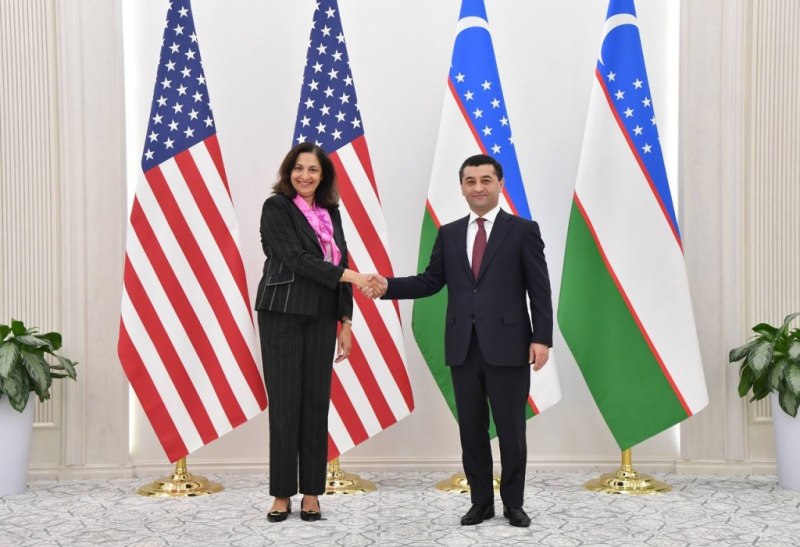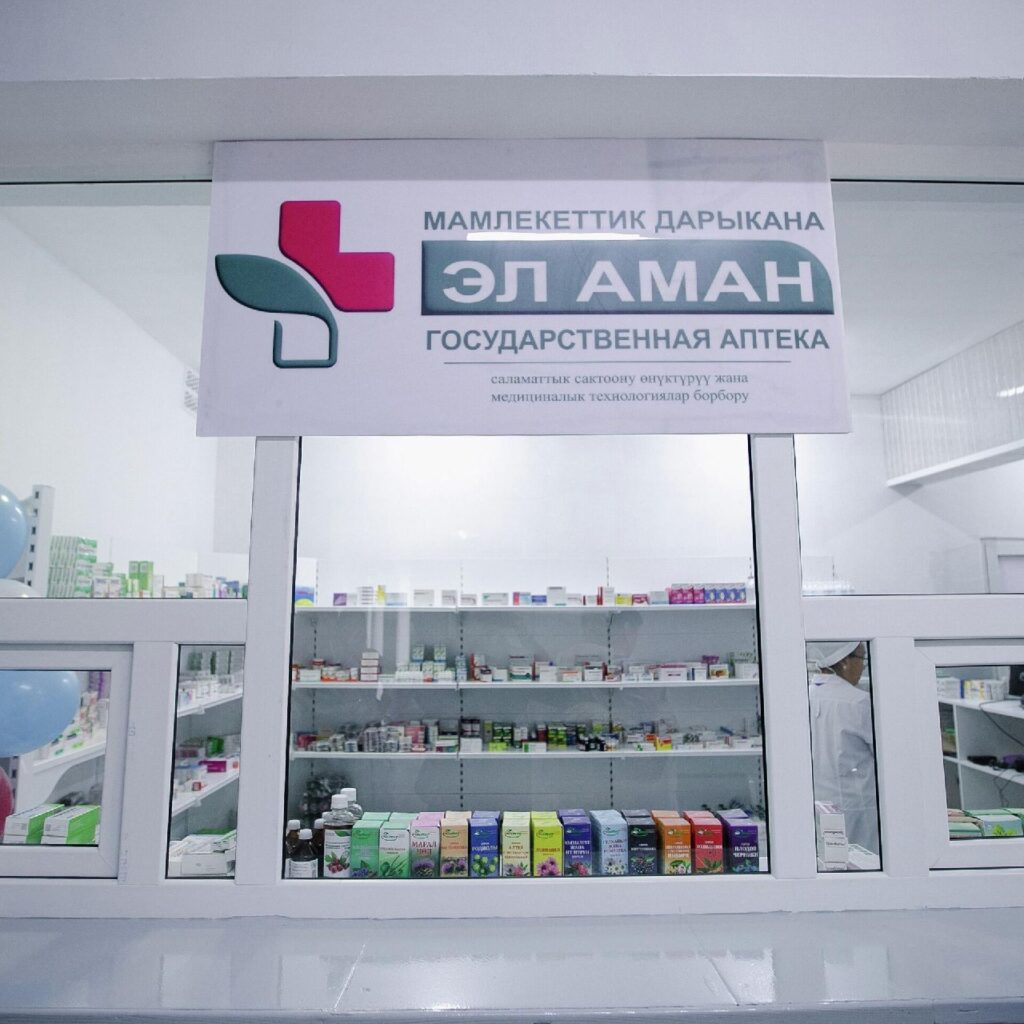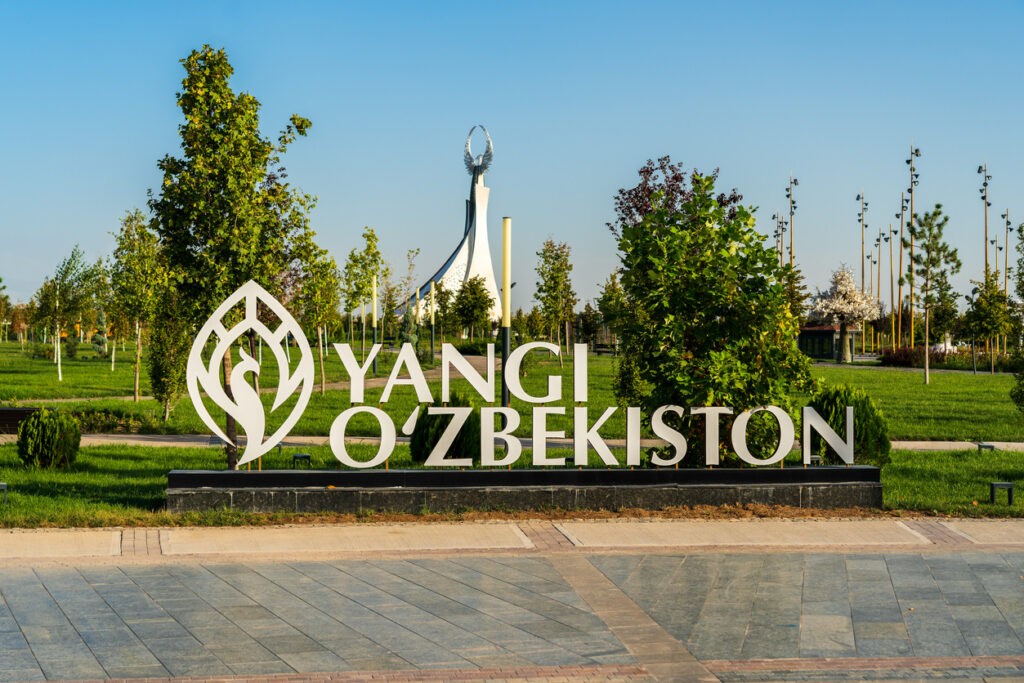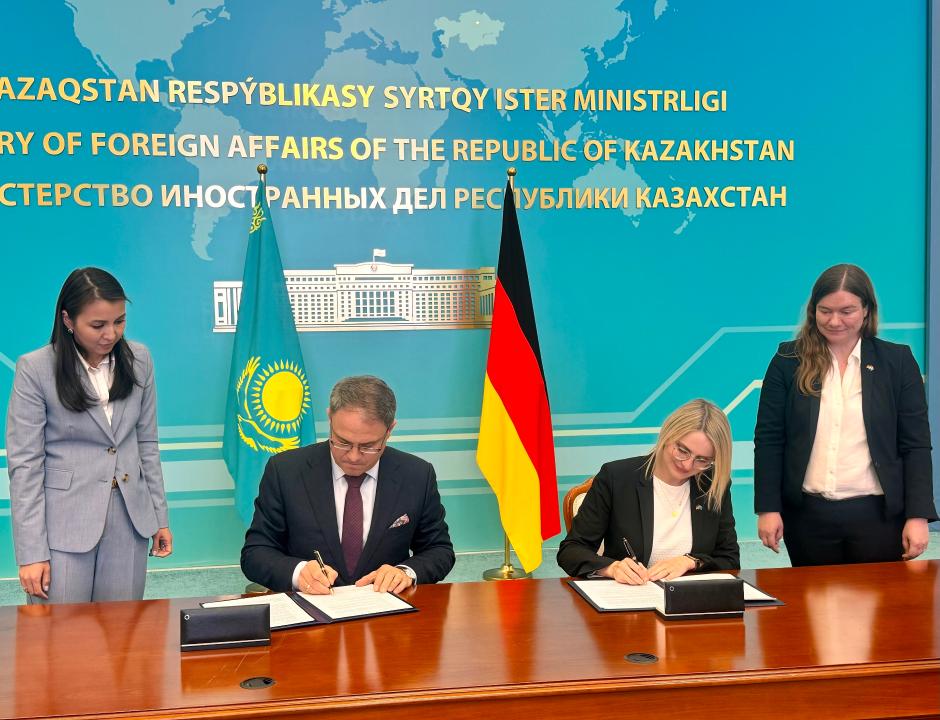U.S., Uzbekistan Discuss Judicial Reforms and Combating Corruption
On May 22, US deputy secretary of state Uzra Zeya visited Uzbekistan and met with foreign minister Bakhtiyor Saidov.
“We discussed several pressing issues on our bilateral agenda, and we agreed to continue our efforts to enrich the close cooperation between Uzbekistan and the USA in all areas, especially to create the most favorable conditions for our people,” Saidov wrote in his Telegram channel following the meeting in Tashkent.
During her trip to Uzbekistan, Zeya also met with prosecutor general Nigmatilla Yuldashev and deputy minister of foreign affairs Muzaffarbek Madrahimov. Her meeting with Yuldashev concerned judicial reforms and the fight against corruption in Uzbekistan. “The US supports strengthening the rule of law and increasing transparency and accountability in the justice sector,” commented Zeya.
Speaking at an academic conference of the Regional Dialogue on Constitutional Criminal Procedures, the US deputy secretary of state emphasized America’s commitment to promoting human rights, the rule of law, and anti-corruption reforms in Uzbekistan. “Ensuring human rights and the rule of law for every citizen of Uzbekistan is necessary for progress and prosperity,” said Zeya.
Saida Mirziyoyeva, the eldest daughter and assistant of Uzbek president Shavkat Mirziyoyev, and Kamil Allamjonov, head of the information policy department of the presidential administration, also met with the US delegation. The parties discussed issues of freedom of speech and women’s rights. “The American side expressed its readiness to fully support the efforts being made in our country to protect women’s rights, ensure media and freedom of speech, as well as increase the effectiveness of civil society and NGO activities,” Mirziyoyeva later wrote.








